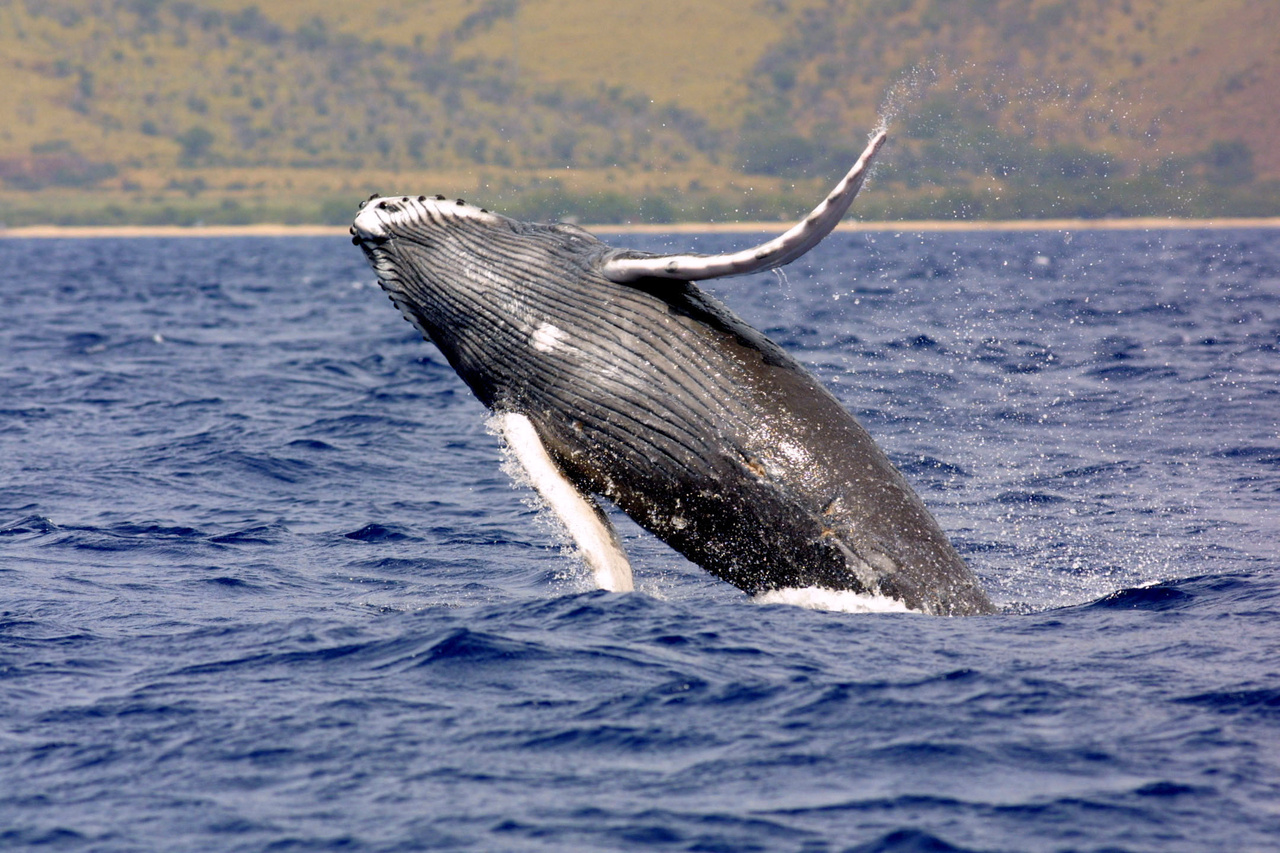
A group of scientists claimed to have had the first-ever conversation with a humpback whale, which could lead to humans communicating with aliens one day.
The extraordinary encounter took place in southeast Alaska in August 2021 between researchers and a female humpback whale for 20 minutes. According to a new study, the scientists used a recorded “contact” call that boomed underwater, attracting the whale to their boat.
Twain, the marine mammal, circled the team’s boat and consistently responded in conversational style to the “greeting signal,” according to a SETI Institute news release. Dr. Brenda McCowan of U.C. Davis praised the discovery.
The whale’s behavior could be an indicator of how alien races might contact humans
“We believe this is the first such communicative exchange between humans and humpback whales in the humpback ‘language,’” said McCowan, who is the lead author of the study published in the peer-reviewed journal PeerJ recently.
Scientists released 36 calls from the speaker after Twain arrived at the boat. According to the study, the whale responded to each one and matched the interval variations between signals.
“It certainly felt like we had been heard,” Fred Sharpe, co-author and principal investigator with the Alaska Whale Foundation, told Business Insider. “And we hope that she felt the same way, too.”
Humpback whales, according to Sharpe, are “extremely intelligent” and can “communicate extensively with both songs and social calls.”
The underwater calls were deployed by a group of whales who were recorded a day before the encounter with Twain, who was also recorded, according to the outlet.
“We might’ve been playing back her own ‘hello’ to her,” Sharpe joked.
The implications of the study, according to Laurance Doyle, an investigator at the SETI Institute and coauthor of the paper, are out of this world.
Doyle told Business Insider that the whale’s behavior could be an indicator of how alien races might contact humans. It’s similar to how Antarctica is used to study Mars as a proxy.
“Because of current limitations on technology, an important assumption of the search for extraterrestrial intelligence is that extraterrestrials will be interested in making contact and so target human receivers,” Doyle said in a press release issued by SETI. “This important assumption is certainly supported by the behavior of humpback whales.”
Doyle and his SETI colleagues are collaborating with UC Davis and Alaska Whale Foundation staff to develop filters that could aid in the discovery of extraterrestrial life. Doyle told Business Insider that researchers don’t want to miss any potential signals used by aliens to contact people.
“There are diverse intelligences on this planet, and by studying them, we can better understand what an alien intelligence might be like because they’re not going to be exactly like ours,” McCowan was quoted as saying by the newspaper.
